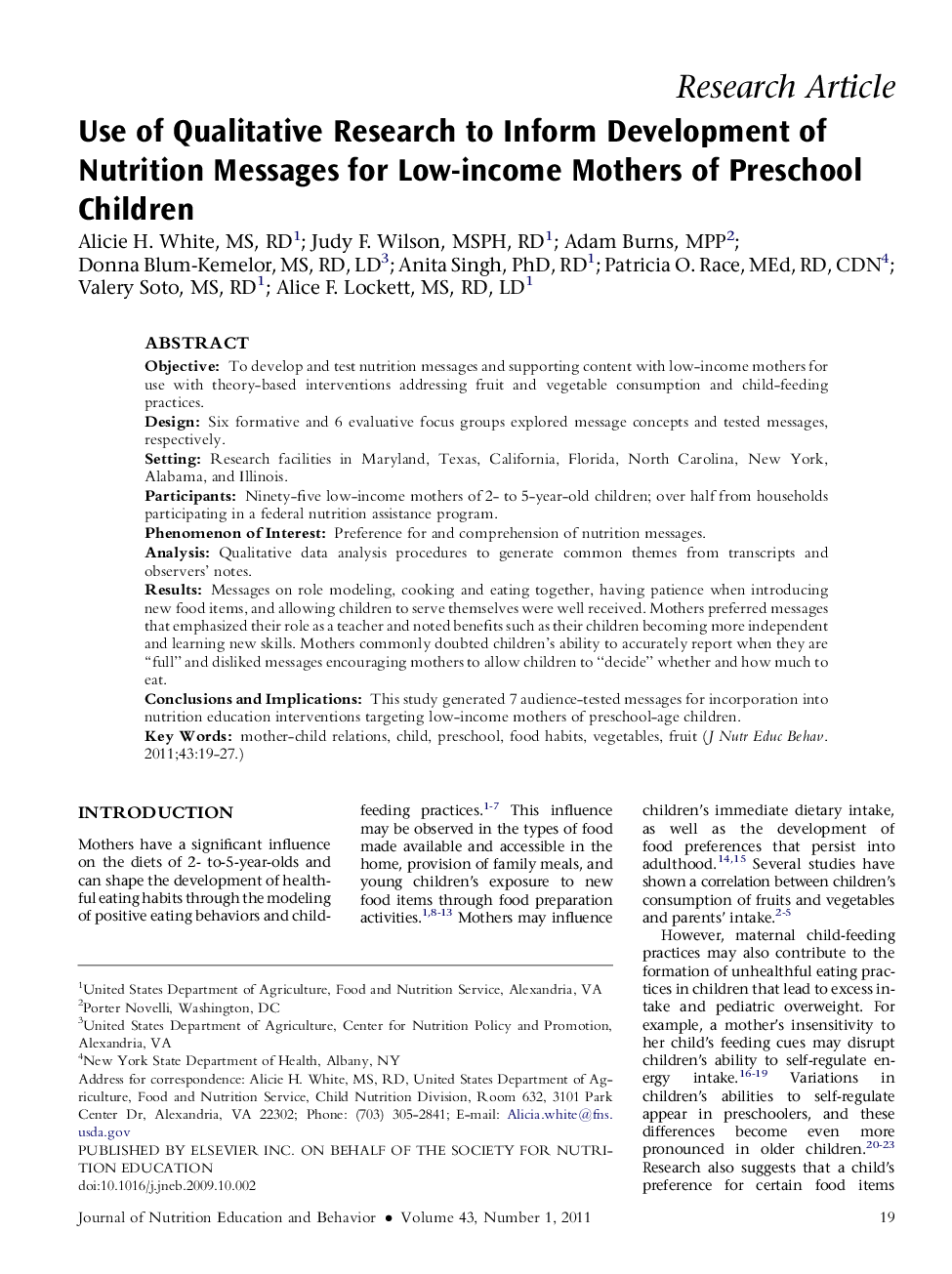| Article ID | Journal | Published Year | Pages | File Type |
|---|---|---|---|---|
| 362936 | Journal of Nutrition Education and Behavior | 2011 | 9 Pages |
ObjectiveTo develop and test nutrition messages and supporting content with low-income mothers for use with theory-based interventions addressing fruit and vegetable consumption and child-feeding practices.DesignSix formative and 6 evaluative focus groups explored message concepts and tested messages, respectively.SettingResearch facilities in Maryland, Texas, California, Florida, North Carolina, New York, Alabama, and Illinois.ParticipantsNinety-five low-income mothers of 2- to 5-year-old children; over half from households participating in a federal nutrition assistance program.Phenomenon of InterestPreference for and comprehension of nutrition messages.AnalysisQualitative data analysis procedures to generate common themes from transcripts and observers' notes.ResultsMessages on role modeling, cooking and eating together, having patience when introducing new food items, and allowing children to serve themselves were well received. Mothers preferred messages that emphasized their role as a teacher and noted benefits such as their children becoming more independent and learning new skills. Mothers commonly doubted children's ability to accurately report when they are “full” and disliked messages encouraging mothers to allow children to “decide” whether and how much to eat.Conclusions and ImplicationsThis study generated 7 audience-tested messages for incorporation into nutrition education interventions targeting low-income mothers of preschool-age children.
